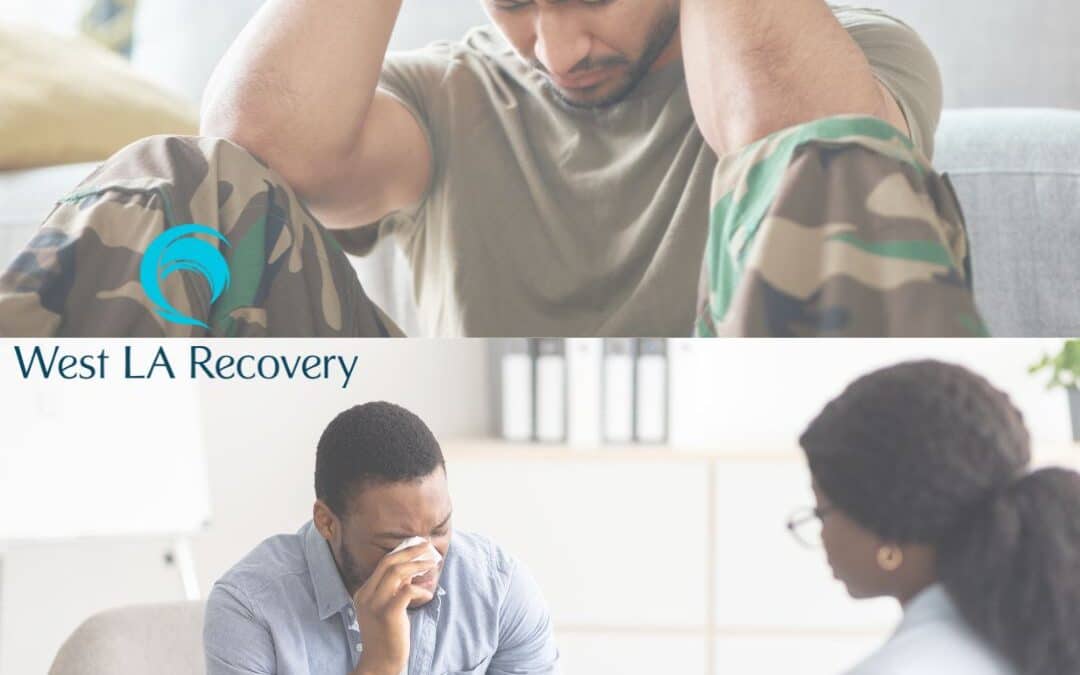Risks Associated with Ativan Use
Ativan (lorazepam) is a medication in the benzodiazepine class, primarily prescribed for anxiety and panic disorders. While it can be effective for short-term use, it’s important for users to understand the significant risks associated with this medication.
Physical Dependence
One major risk of long-term Ativan use is physical dependence. This can occur even if the medication is taken exactly as prescribed. The brain adapts to the presence of the drug, making it harder to function without it. This adaptation usually happens within 2-4 weeks of regular use.
Substance Use Disorder
Another concern with benzodiazepine use is the potential development of substance use disorder. Users may experience strong cravings, continue taking the medication despite negative consequences, or engage in drug-seeking behaviors. These patterns can develop gradually, making them difficult to recognize.
Tolerance and Its Consequences
Tolerance is another critical risk factor associated with Ativan use. As the body becomes used to the medication, larger doses are needed to achieve the same therapeutic effects. This development of tolerance creates a dangerous cycle:
- Higher doses are needed for symptom relief
- There is an increased risk of adverse effects and complications
- Physical dependence becomes more likely
- The potential for accidental overdose heightens
The relationship between tolerance and dosage poses specific challenges for both medical professionals and patients. To effectively manage these risks, regular monitoring and open communication with healthcare providers are essential.
Can You Overdose on Ativan?
An Ativan overdose occurs when someone takes more of the medication than their body can safely process, leading to severe central nervous system depression. The risk becomes particularly dangerous with doses exceeding 10mg in a short period, though the exact amount varies based on individual factors.
Benzodiazepine-related Overdoses
Recent CDC data reveals a concerning trend in benzodiazepine-related overdoses, with Ativan (lorazepam) contributing to these statistics. In 2020, approximately 12,290 deaths involved benzodiazepines, representing a significant public health concern. The risk multiplies when Ativan is combined with other substances – 92% of benzodiazepine-involved deaths also included opioids.
Therapeutic Dosage and Overdose Risk
The standard therapeutic dosage ranges from 1mg to 2mg for anxiety treatment, but exceeding these prescribed amounts dramatically increases overdose risk. Medical records indicate that patients taking higher doses, especially those using 6mg or more daily, face elevated dangers of respiratory depression and other life-threatening complications.
Signs and Symptoms of Ativan Overdose
If you suspect someone has overdosed on Ativan, it’s crucial to recognize the signs and symptoms promptly. An overdose can have serious consequences and requires immediate medical attention.
Physical Symptoms
Look out for the following physical signs:
- Severe drowsiness or inability to stay awake
- Blurred or double vision
- Profound weakness in muscles
- Difficulty breathing or shallow breathing
- Uncontrollable eye movements
- Blue-tinted lips or fingernails
- Weak or rapid pulse
Mental and Behavioral Signs
In addition to physical symptoms, be aware of any changes in mental state or behavior:
- Extreme confusion or disorientation
- Impaired coordination
- Paradoxical reactions (increased aggression)
- Memory problems
- Altered mental state
The most critical symptom to watch for is respiratory depression, which can be life-threatening. This condition is characterized by significantly slowed breathing rates and requires immediate medical intervention. If you notice multiple symptoms, especially breathing difficulties or severe confusion, it indicates a medical emergency that demands urgent care.
Remember, a person experiencing these symptoms needs professional medical attention – waiting or hoping symptoms improve puts their life at risk.
Factors Increasing Overdose Risk with Ativan
The risk of Ativan overdose rises dramatically when combined with other central nervous system (CNS) depressants. Mixing Ativan with alcohol or opioids creates a dangerous multiplier effect, intensifying sedation and potentially leading to life-threatening respiratory depression.
The recommended adult dosage for Ativan ranges from 2-6mg daily, divided into multiple doses. Exceeding these prescribed limits significantly increases overdose risk. Patients who develop tolerance often feel tempted to take higher doses, creating a dangerous cycle of escalating use.
Several specific factors heighten overdose danger:
- Polysubstance use: Combining Ativan with other medications, particularly opioids or sleep aids
- Pre-existing medical conditions: Respiratory issues or liver problems can affect how the body processes Ativan
- Age: Older adults metabolize Ativan more slowly, increasing sensitivity
- Dosage timing: Taking doses too close together allows the drug to accumulate in the system
Individuals with a history of substance use disorder face elevated risks, as past patterns may influence current medication use behaviors.
Treatment for Ativan Overdose
An Ativan overdose requires immediate emergency medical attention. Call 911 right away if you suspect someone has overdosed – every second counts. Medical professionals will assess vital signs and implement life-saving interventions to stabilize breathing and heart function.
The primary antidote used in Ativan overdose cases is flumazenil, a medication that reverses the effects of benzodiazepines. This treatment must be administered by healthcare professionals in a controlled setting due to potential risks:
- Seizures in long-term Ativan users
- Severe withdrawal symptoms
- Cardiac arrhythmias
- Return of overdose symptoms
Emergency medical teams focus on maintaining the patient’s airway and breathing through oxygen supplementation or mechanical ventilation when necessary. They also monitor vital signs, including blood pressure, heart rate, and oxygen levels. Intravenous fluids help maintain blood pressure and organ function during treatment.
The recovery period requires close medical supervision, as complications can arise even after initial stabilization. Medical professionals will determine appropriate follow-up care based on individual circumstances and severity of the overdose.
Preventing Ativan Overdose: Safe Usage Guidelines You Should Know About
Safe Ativan usage starts with strict adherence to prescribed dosages. Keep a medication diary to track your intake, noting the time and amount of each dose. Store your medication in a secure, temperature-controlled environment away from children and others.
Essential Safety Guidelines:
- Take Ativan exactly as prescribed by your healthcare provider
- Never adjust dosages without medical consultation
- Avoid alcohol and other central nervous system depressants
- Use pill organizers to prevent accidental double-dosing
- Keep all follow-up appointments with your prescribing physician
Professional addiction treatment programs offer structured support for individuals struggling with Ativan use. These programs provide medical supervision, therapy, and coping strategies to maintain prescribed usage patterns.
Your healthcare provider serves as your primary resource for Ativan-related concerns. Schedule regular check-ins to discuss:
- Current medication effectiveness
- Any side effects you’re experiencing
- Questions about dosage adjustments
- Alternative treatment options
A transparent relationship with your healthcare team creates a foundation for safe, effective Ativan use. Share any concerns about dependency or tolerance development promptly – medical professionals can adjust treatment plans to ensure your safety while managing symptoms effectively.
Withdrawal Symptoms After Discontinuation: What to Expect When Stopping Ativan
Stopping Ativan after long-term use triggers a range of physical and psychological withdrawal symptoms. These symptoms can begin within 24 hours after the last dose and may persist for several weeks.
Common Physical Withdrawal Symptoms:
- Muscle pain and stiffness
- Tremors and shaking
- Nausea and vomiting
- Sleep disturbances
- Sweating
- Heart palpitations
Psychological Effects:
- Rebound anxiety (often more intense than before)
- Panic attacks
- Depression
- Memory problems
- Difficulty concentrating
- Irritability and mood swings
The severity of withdrawal depends on factors like dosage, duration of use, and individual health conditions. Some people experience cognitive difficulties, including confusion and memory lapses, which can affect daily functioning.
Medical Supervision Is Critical
Attempting to quit Ativan without professional help can be dangerous. Medical professionals create personalized tapering schedules to minimize withdrawal risks. They monitor vital signs and provide necessary interventions to manage severe symptoms.
A structured withdrawal program includes:
- Gradual dose reduction
- Regular health assessments
- Medical support for complications
- Psychological counseling
- Alternative anxiety management techniques
These withdrawal symptoms highlight the importance of taking Ativan exactly as prescribed and discussing any concerns about dependency with healthcare providers. It’s crucial to seek professional help, such as in benzodiazepine addiction treatment programs, which offer comprehensive support during the recovery process.
Get Help Now! Reach Out to West LA Recovery Today!
Breaking free from Ativan dependence is possible with the right support and guidance. Our dedicated team of addiction specialists at West LA Recovery understands the complexities of benzodiazepine dependence and provides personalized treatment plans tailored to your needs.
Don’t let fear or uncertainty hold you back from seeking help. We offer comprehensive treatment programs, including medically supervised detox, therapy, and ongoing support to ensure your safety and comfort throughout recovery. For those struggling with motivation during this challenging time, our resource on Finding Motivation in Addiction Recovery can provide helpful tips to build resilience and achieve long-term success in recovery.
Take the first step toward reclaiming your life. Call us now at [phone number] or visit our facility to speak with our compassionate staff. Your journey to recovery starts here at West LA Recovery.
Your health and well-being are our priority. Reach out today – we’re here to help you overcome Ativan dependence safely and effectively.







